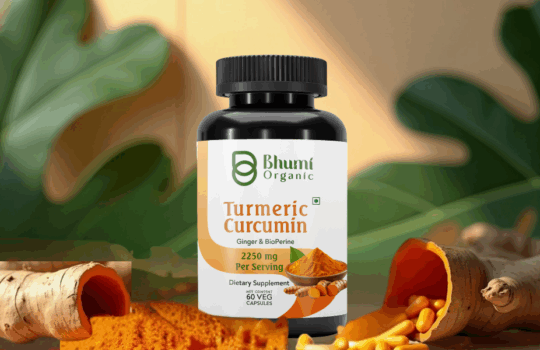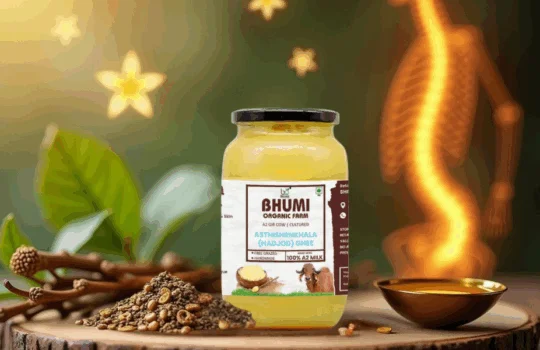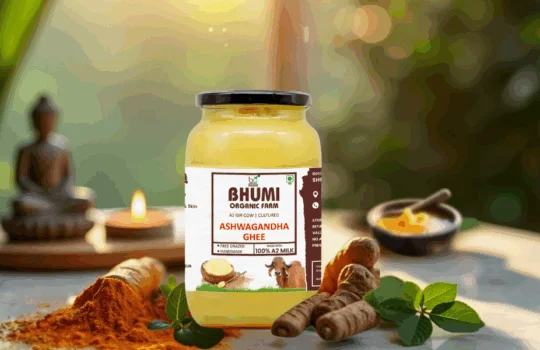Ghee, a clarified form of butter, is a calorie-dense food that primarily consists of saturated fats. Like any high-calorie food, excessive consumption of ghee can contribute to weight gain if it exceeds your daily caloric needs. However, when consumed in moderation as part of a balanced diet, ghee may not necessarily lead to weight gain and can even be part of a healthy eating pattern. Here are some considerations:
- Calorie Content:
- Ghee is energy-dense, providing around 120 calories per tablespoon. Consuming it in excess without accounting for these calories can contribute to an overall caloric surplus, leading to weight gain.
- Nutrient Composition:
- While ghee is rich in saturated fats, it also contains fat-soluble vitamins like A, E, and D. It’s important to balance its intake with a variety of foods that provide essential nutrients, such as fruits, vegetables, whole grains, and lean proteins.
- Moderation is key.
- The key to incorporating ghee into a healthy diet is moderation. Using small amounts for cooking or as a flavor enhancer can add richness to your meals without significantly impacting your overall calorie intake.
- Types of Fats:
- The saturated fats in ghee are primarily in the form of short-chain fatty acids, which some studies suggest may have different metabolic effects than the long-chain saturated fats found in some other animal fats. However, moderation remains crucial.
- Individual Factors:
- Individual responses to dietary fats can vary. Factors such as overall diet, physical activity levels, and metabolic rate play a role in how different people respond to the consumption of calorie-dense foods like ghee.
- Healthy Fat Source:
- While high in saturated fats, ghee is also a source of monounsaturated fats and may be a suitable alternative to other cooking fats. Including a variety of healthy fats in your diet, such as those from avocados, nuts, and olive oil, is important for overall health.
- Weight Management Factors:
- Weight management involves not only the types and amounts of foods consumed but also factors like physical activity, hydration, and an overall lifestyle. Maintaining a balance among these factors is essential for a healthy weight.
It’s advisable to consult with a healthcare professional or a registered dietitian for personalized dietary advice, especially if you have specific health concerns or are working towards weight management goals. They can provide guidance on incorporating fats like ghee into your diet in a way that aligns with your overall health objectives.
Related Articles
Recent Comments
Recent Posts
Tags
A2 milk Aged garlic Anti-inflammatory Ayurvedic medicine Bilona method Black garlic bread Black garlic chicken Black garlic extract Black garlic hummus Black garlic mayonnaise Black garlic oil Black garlic paste Black garlic powder Black garlic recipes Black garlic salt Black garlic seasoning Black garlic shrimp Black garlic steak Black garlic supplements Black garlic tofu Black garlic vinegar Butyric acid Conjugated linoleic acid (CLA) Cooking oil alternative Digestive health Fat-soluble vitamins Fermented garlic Gir cow Grass-fed cows Gut bacteria Health benefits Health benefits of black garlic Natural ghee Nutritious fat Omega-6 fatty acid Organic ghee Pure butterfat Pure ghee Rich flavour Roasted garlic Spread alternative Sweet garlic Traditional churning method Traditional Indian ghee Umami flavour




